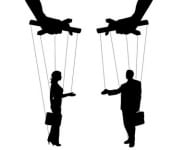Negotiation Success: How To Evaluate & Measure

Learn how to employ 3 important ways to track the effort you employ in all your negotiating results.
“How can we evaluate the negotiation ability of our managers, sales people and others who negotiate on behalf of our company?” I was lately asked by a client.
“After all, we only seldom get the opportunity to really find out what they left on the table. Few of their counterparts will ever tell us what they were truly willing to do.”
“It’s difficult,” I replied. “Especially as just closing the deal may not be so great if they could have achieved better results by using more effective negotiating strategies.”
It is crucial for companies to evaluate their employees’ negotiation skills given their affect on companies’ bottom lines.
So how can you measure your employees’ negotiation abilities?
1. Implement and track proven negotiation strategies
In the last 25 or so years, there has been a proliferation of well-designed studies that have tested the success of negotiation strategies. It’s now fairly apparent what techniques work and what don’t.
Companies now can evaluate and enhance their employees’ negotiation effectiveness by a) setting up a strategic negotiation process, b) training them in it, c) track and assess the extent to which their employees implement these sales and training negotiation strategies, and d) measuring and comparing their results.
2. Analyse the leverage situation
One primary area to track relates to leverage. Specifically, your success in any deal often will be directly correlated to what you would have done if you had not reached agreement with your counterpart.
Thus, one relatively objective way to assess a crucial element of negotiation success is to contrast the terms of your final deal with what you initially would have done if you had not negotiated it. The difference will be the relative effect of your negotiation effort.
Assume John at ABC Corp. has been requested to get the best deal he can for 100 hotel rooms for ABC’s annual conference. He contacts three class hotels and is quoted the following rates: Hotel X $13,000; Hotel Y $13,500; and Hotel Z $14,000.
John subsequently negotiates a rate of $12,000 at Hotel Y. How can you measure John’s ability or negotiation success? Compare ABC’s best alternative at the beginning of the process with ABC’s deal after John has finished his negotiation. This $1,000 difference is attributable to John’s negotiation effort.
3. Evaluate the outcome vis-à-vis objective standards
Another crucial success element to compare is your employees’ results relative to objective standards such as market value, efficiency, costs/profits and expert opinions.
Let’s say Linda is the hiring partner at a 20-lawyer law firm that has decided to employ a three-year lawyer. So she employs Sally at a $100,000 annual salary.
If most three-year lawyers are given offers at about $100,000, that salary is market rate, Linda’s negotiation effort was average. But if Sally accepted $90,000, a below market rate, Linda’s effort was above average. Linda’s partners might also evaluate her effectiveness by:
- Measuring Sally’s compensation to the firm’s precedent — what it reimburses other similarly experienced lawyers in its firm.
- Asking a human resources expert to rate the relative nature of Sally’s compensation package.
- Comparing Sally’s compensation with her eventual ability to produce profit.
Many companies may find resistance to these ways of rating negotiation skills success. Employees become accountable for their negotiation effectiveness. Some will welcome this, but many will oppose.
That’s a negotiation definitely worth winning.
Marty Latz, a negotiation columnist for The Business Journal of Phoenix.
YOU MAY ALSO LIKE




